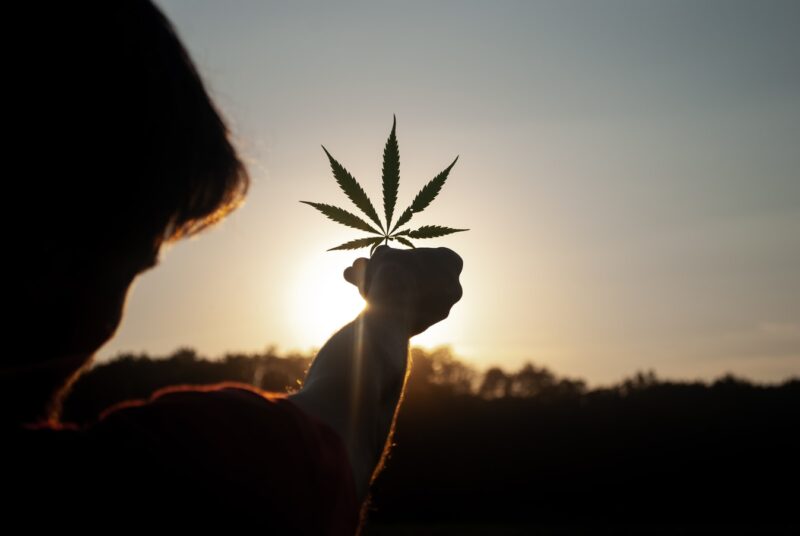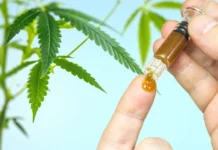Interestingly, there is a strong opinion among many people that Cannabis affects depression directly. Keeping this in mind, here, an effort is made to unearth the complexities related to these two things within the circumference of limitations. You may take a look at the following points that will help you in broadening your understanding related to Cannabis and Depression.
What is Cannabis?
Cannabis is known by other names, such as pot, weed, or marijuana. This is a product that comes from three plants grown mostly in Asia. These are – Sativa, Indica, and Ruderalis. These differ in size, shape, and color. Also, the Flower of these plants is known as buds. These have become quite popular in the past few years. You may find these even at canadacannabisdispensary.co. These buds offer euphoric feelings that soothe your mind, thereby allowing you to relax. However, there are certain shortcomings in taking a high amount of Cannabis that one needs to remember when consuming its strains.
What is Depression?
Depression is one of the most misused terms. It is used regularly by every other person in such a casual way that diminishes its gravity. Technically, this is a mental health problem where the feeling of remorse overpowers you most of the time. There are innumerable reasons that trigger this mood disorder. A person suffering from this illness may appear normal to you, but inside, the lava of sadness is forming incessantly. When erupted, it is called bouts of depression.
What are the Types of Depression?

Depression is of many types of clinical depression. Here seven types have been discussed. These are:
Major Depressive Disorder (MDD)
One of the most common types of depression is MDD. It is a disorder in which your mood disorder. The mood of the patient is usually sad and is unable to enjoy the day to day activities of life. The major physical symptoms of these are sudden weight gain or loss, alteration in the sleeping pattern, and fatigue.
The person suffering from this problem always has a feeling of Suicidal tendencies, and difficulty in concentrating on anything for long are some other symptoms of it. However, only a person is declared to be suffering from MDD if their symptom continues for more than two-week.
Dysthymia/Persistent Depressive Disorder (PDD)
This is chronic depression and can last for years. It ranges from mild to severe in addition to moderate. The symptoms in this type of clinical depression are not serious such as MDD. However, they last longer, which creates the problem.
The feeling of anger is higher in this depression. Further, the patient’s appetite keeps changing. Sometimes you may feel quite hungry, but other times you have no interest in eating any food. There are medications available in the market to resolve this problem. You need to consult a doctor about it.

Bipolar Disorder
This type of depression is commonly known as mood swing disorder. However, exactly these are mood disorders where your temper keeps altering. Sometimes, the person appears quite joyful, and after a few hours or even after some minutes, they become gloomy. Apart from the change in mood, there are other symptoms of Bipolar disorder, such as fatigue, despondency, and low confidence.
Postpartum Depression (PPD)
This depression is common after pregnancy. The considerable hormonal shifts after the birth of your child lead to mood alteration. This results in high petulance and anxiety among new moms. Further, the changing body shape and lifestyle also create a feeling of sadness in the patient. However, PDD is not what you call “baby blues”. It is something more than that. Feeling remorse all the time and irritated make changes in the social life of the mother too.
Atypical Depression
This is a type of depression where everything seems normal. The behavior of the patient is not like a typical depressed person. However, there are signs which show not everything is fine. You may show symptoms like eating too much, oversleeping, high sensitivity, getting emotional suddenly, or any other such activities that are different from the person you actually are.
How Cannabis Affects you in Depression?

As already discussed, depression is a clinical problem. Therefore, it requires proper treatments. You need to seek medical help from a qualified doctor. Nonetheless, there are times when it is said that the intake of Marijuana leads to depression. This is factually incorrect. Undoubtedly, there have been studies showing that psychotic illnesses get triggered by excessive use of it. Still, there is nothing substantial to prove that it directly affects you with depression. As of date, there is no comprehensive research that has concluded this, and so it is a topic of open discussion.
What are the Chemical Components of Cannabis?
All three strains of Cannabis have broadly two components present in it. These are –
- Tetrahydrocannabinol (THC) – This part of Cannabis is the controversial one. Mostly, it is used by people for recreational purposes. This chemical part is psychoactive and makes you feel high.
- Cannabidiol – commonly known as by its acronym CBD, this component of Cannabis is considered the healthy one. It is non-psychoactive and so used for medicinal purposes. In fact, it has been instrumental in changing the outlook of people all across the globe about Marijuana in general. Strikingly, many doctors even treat autistic people and other depression patients with this part of Cannabis. You may find CBD oils and other products online.

Conclusion
Staying healthy is in your hand. If you consume anything in excess, then it can harm your body adversely. The same is true for Cannabis too. Furthermore, if you are suffering from any mental health condition, then it is always better to avoid self-diagnosis and seek professional help.
Depression is a clinical condition which if not taken seriously, can affect you in a harmful way. Therefore, you must ensure that you take extra care about the symptoms mentioned above for different types of depression. Make health-related decisions that are prudent and are beneficial in your life.












